Find Help
More Items From Ergsy search
-
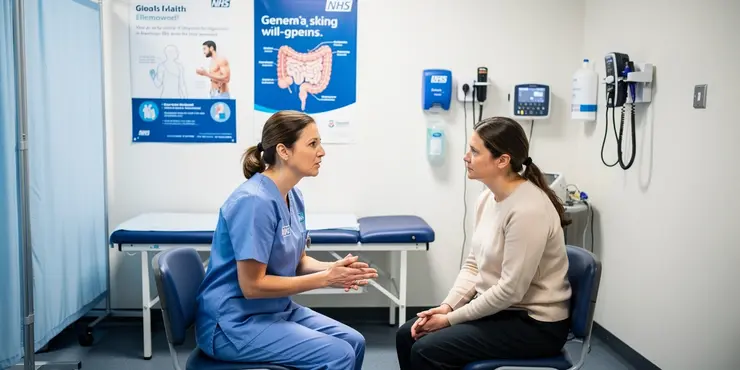
Symptoms of irritable bowel syndrome (IBS)
Relevance: 100%
-
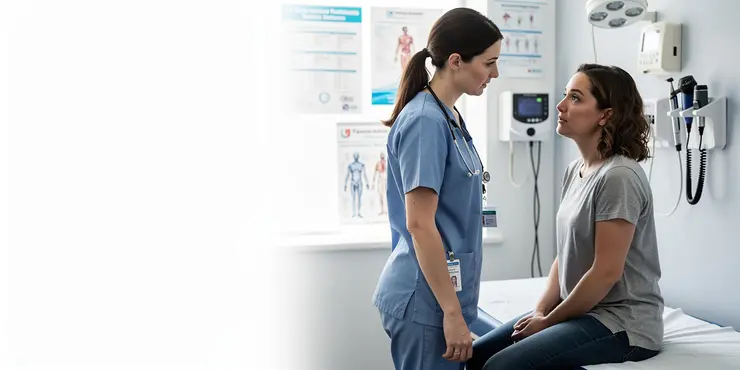
What is irritable bowel syndrome (IBS)?
Relevance: 99%
-

About irritable bowel syndrome (IBS)
Relevance: 97%
-

Diagnosing irritable bowel syndrome (IBS)
Relevance: 97%
-
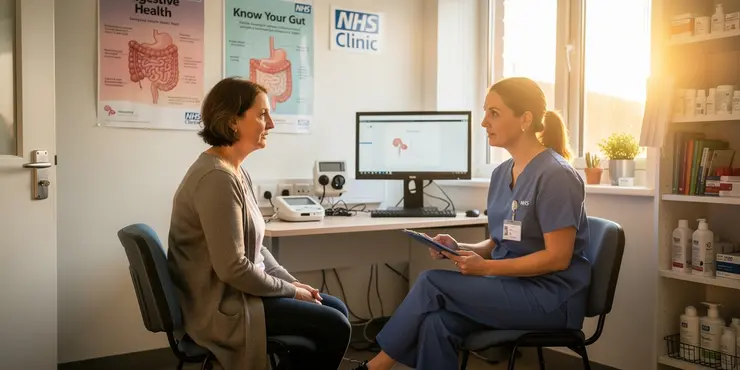
About irritable bowel syndrome (IBS)
Relevance: 96%
-
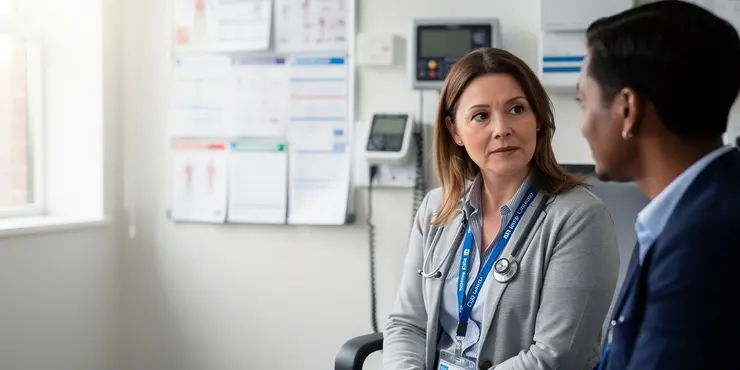
What is irritable bowel syndrome (IBS)?
Relevance: 95%
-
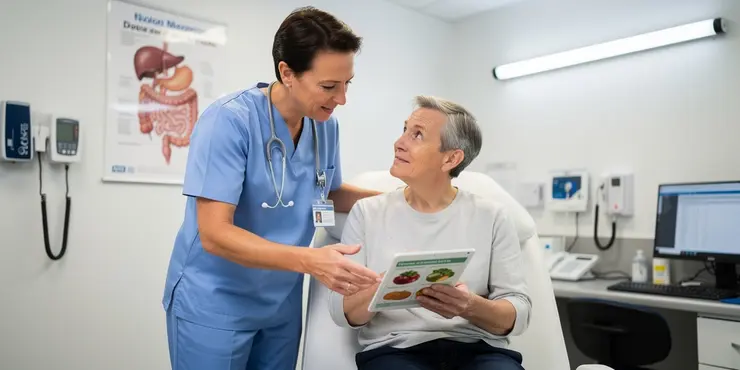
Treating irritable bowel syndrome (IBS)
Relevance: 93%
-
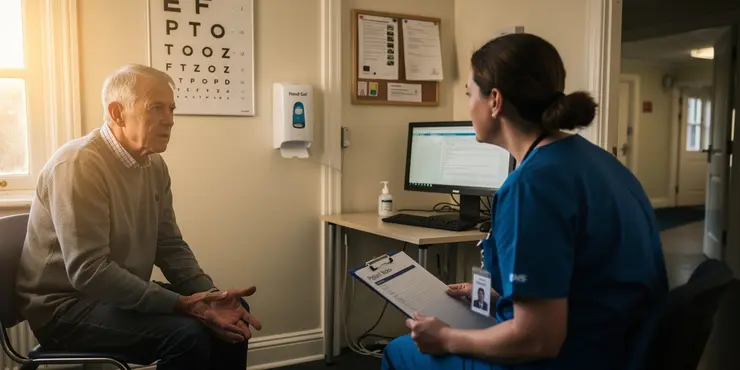
Causes of irritable bowel syndrome (IBS)
Relevance: 93%
-
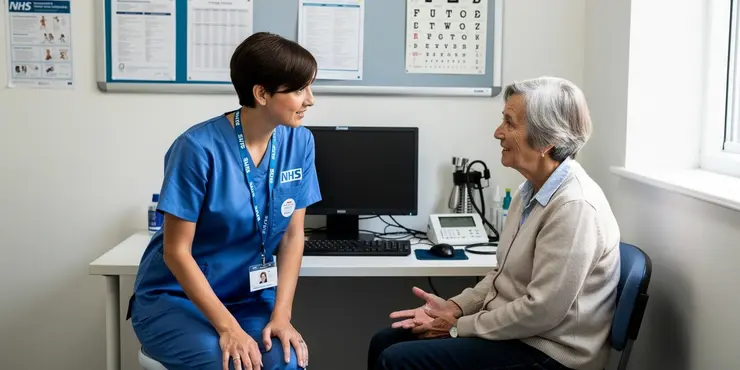
Causes of irritable bowel syndrome (IBS)
Relevance: 90%
-

Treating irritable bowel syndrome (IBS)
Relevance: 87%
-

Symptoms of irritable bowel syndrome (IBS)
Relevance: 85%
-
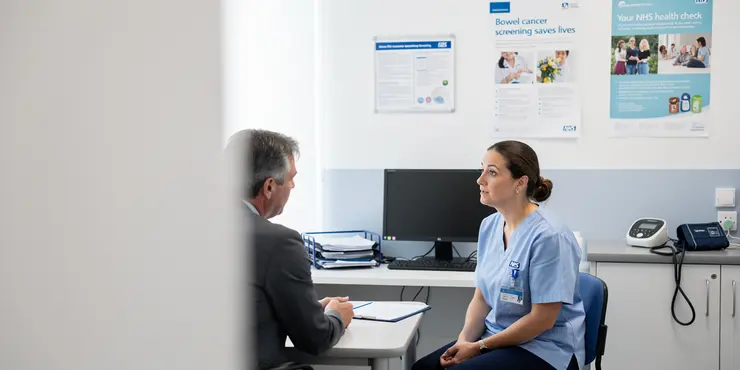
Taking a Genetic Family History - The Conversation (Bowel Cancer)
Relevance: 47%
-
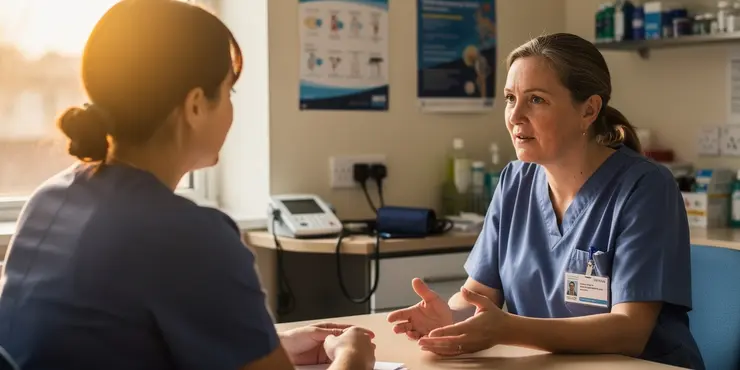
What are the side effects of bowel cancer treatment?
Relevance: 46%
-
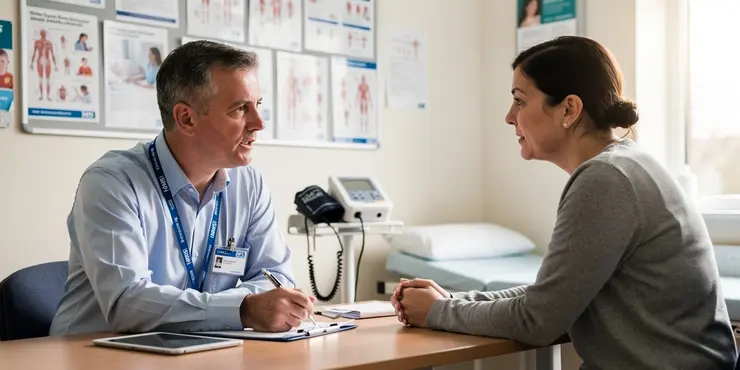
Why is there a surge in bowel cancer?
Relevance: 46%
-

How does family history affect the risk of bowel cancer?
Relevance: 45%
-
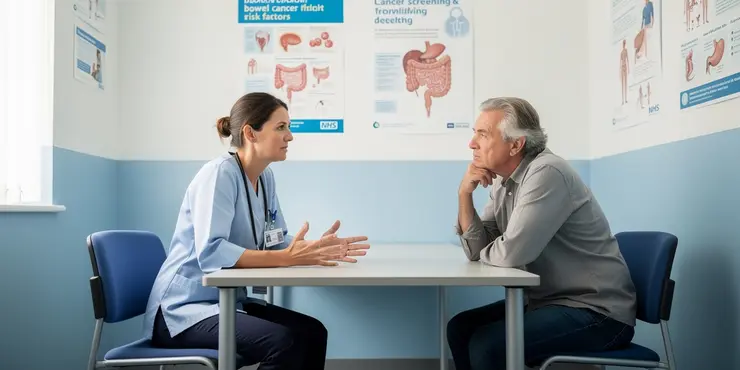
What are the risk factors for bowel cancer?
Relevance: 44%
-
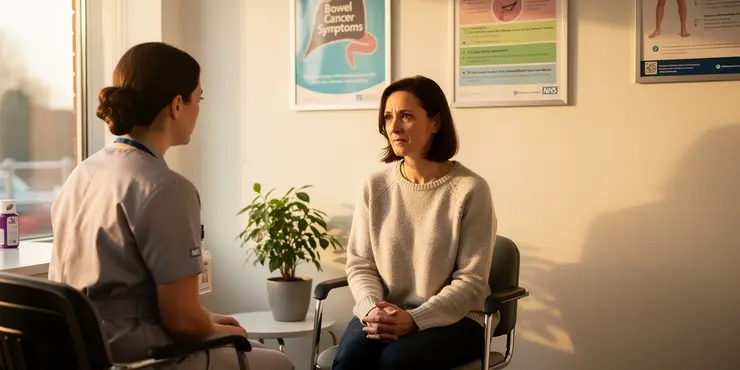
What is Bowel Cancer?
Relevance: 43%
-
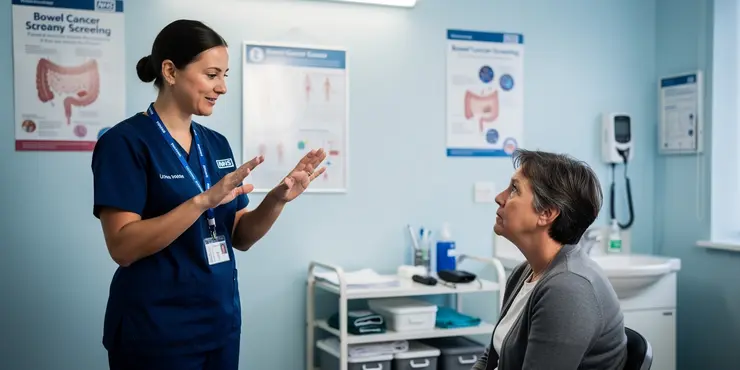
Learn about bowel cancer (British Sign Language version)
Relevance: 41%
-

How common is bowel cancer?
Relevance: 40%
-
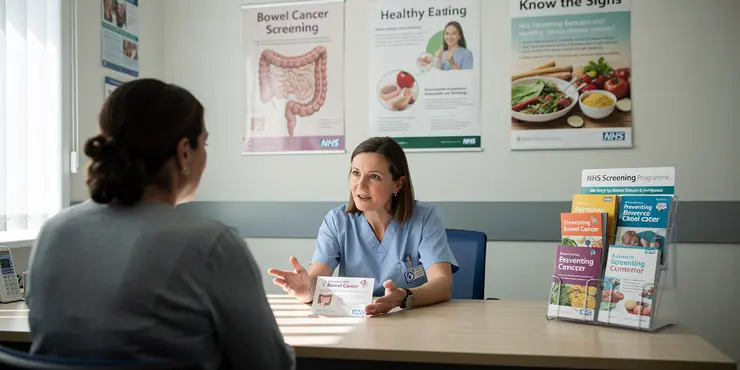
Can bowel cancer be prevented?
Relevance: 40%
-

Exercises for sciatica: piriformis syndrome | NHS
Relevance: 40%
-
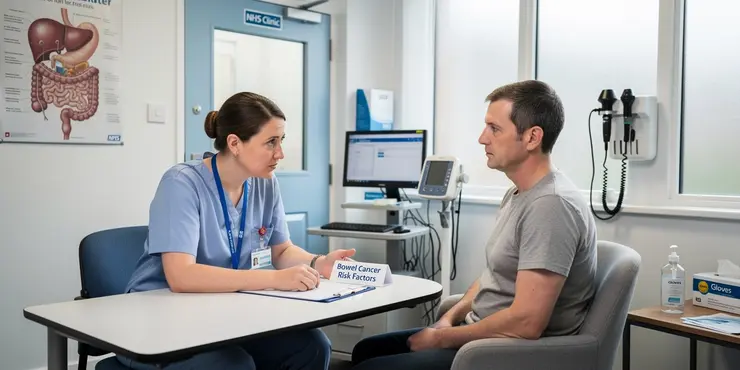
What factors are contributing to the increase in bowel cancer cases?
Relevance: 39%
-

What is Cushing's syndrome?
Relevance: 38%
-

How is bowel cancer diagnosed?
Relevance: 38%
-

Munchausen's syndrome | NHS
Relevance: 38%
-
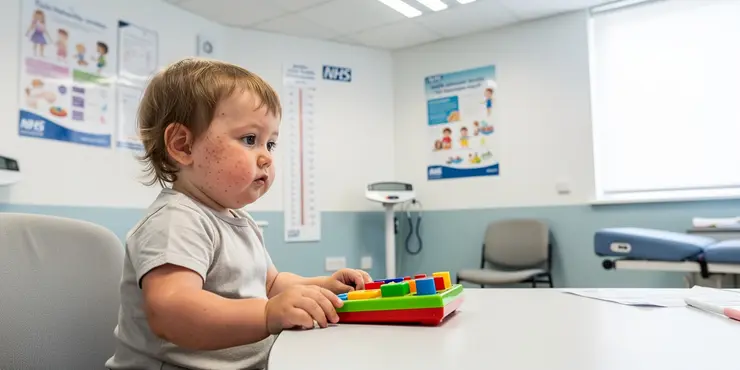
Prader-Willi Syndrome | NHS
Relevance: 37%
-
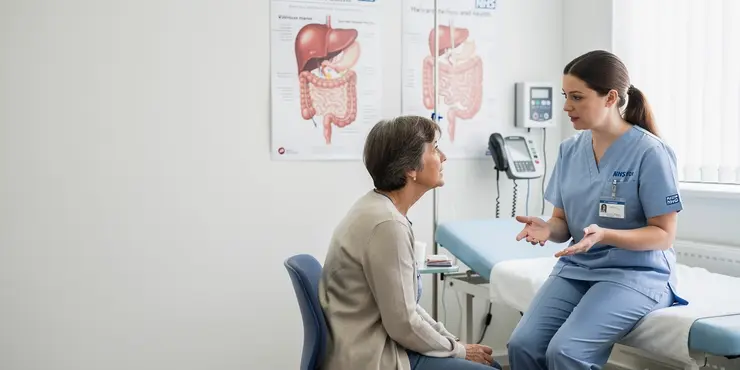
Is diet linked to the rise in bowel cancer?
Relevance: 37%
-
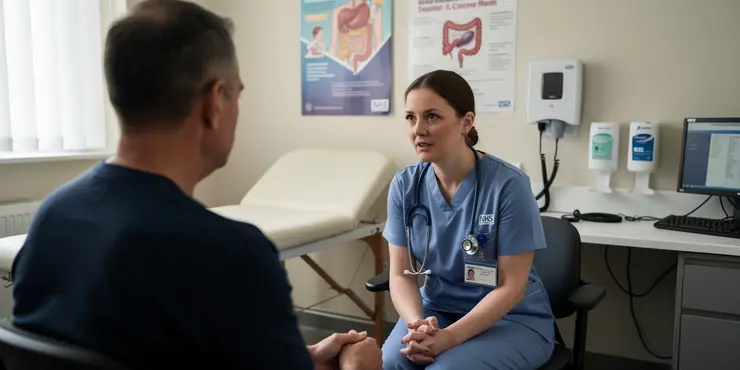
What is the survival rate for bowel cancer?
Relevance: 37%
-

Carpal Tunnel Syndrome
Relevance: 36%
-

Bowel cancer - Symptoms and signs to look out for
Relevance: 36%
-
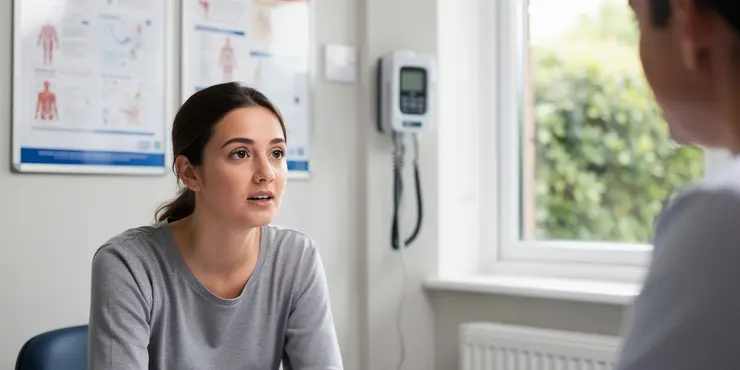
Are younger people being diagnosed with bowel cancer more frequently?
Relevance: 35%
-

What is complex sleep apnea syndrome?
Relevance: 35%
-

Is chronic fatigue syndrome contagious?
Relevance: 35%
-

What treatment options are available for bowel cancer?
Relevance: 35%
-
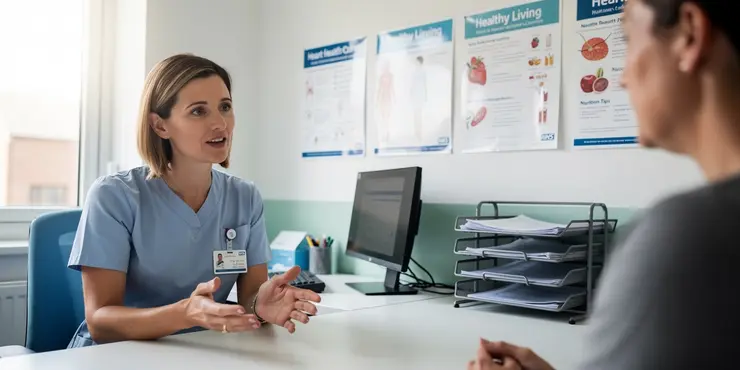
What lifestyle changes can help lower the risk of bowel cancer?
Relevance: 35%
-

Having a child with Down's syndrome | NHS
Relevance: 35%
-
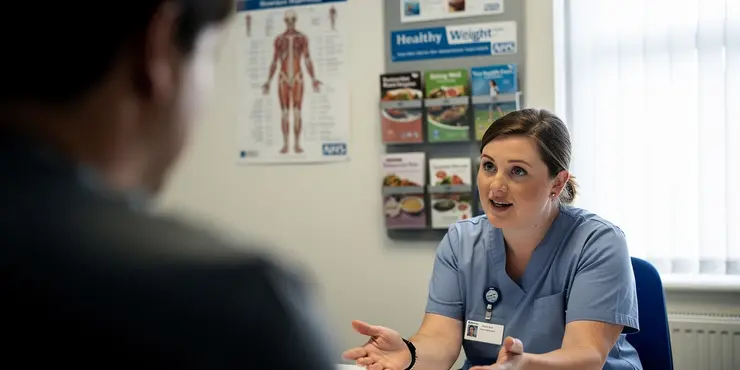
How does obesity affect bowel cancer rates?
Relevance: 35%
-

Down's syndrome: Emily's story | NHS
Relevance: 35%
-
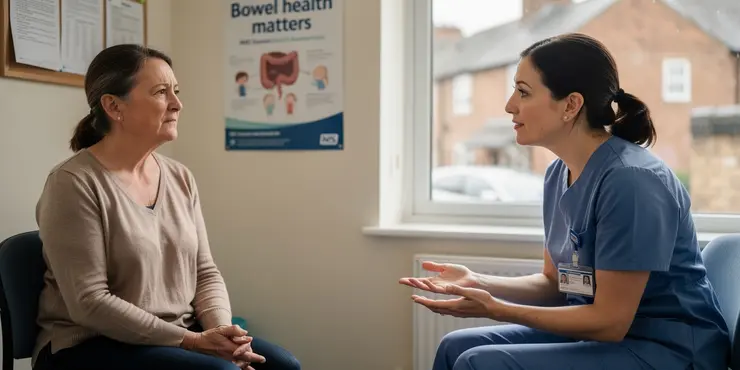
Can bowel cancer spread to other parts of the body?
Relevance: 35%
-
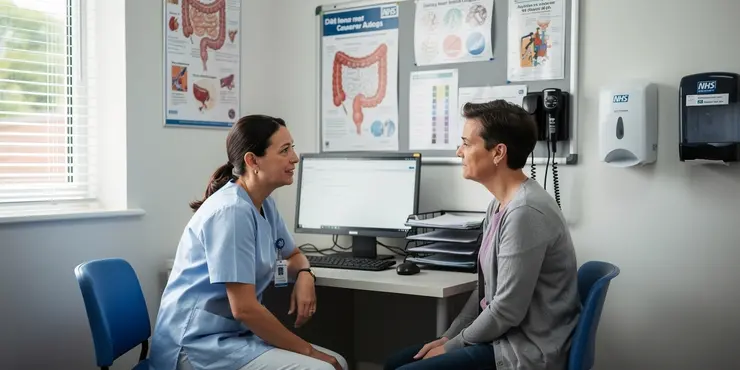
How is the stage of bowel cancer determined?
Relevance: 35%
Treating Irritable Bowel Syndrome (IBS)
Understanding IBS
Irritable Bowel Syndrome (IBS) is a common digestive condition that affects the large intestine. Symptoms can include cramping, abdominal pain, bloating, gas, and diarrhea or constipation. The exact cause of IBS is unknown, but it is believed to be related to a combination of abnormal gastrointestinal tract movements, increased sensitivity to pain, and possibly certain hormonal changes or food triggers.Dietary Adjustments
Dietary changes are often the first line of treatment for IBS. In the United Kingdom, the National Institute for Health and Care Excellence (NICE) recommends a balanced diet with regular meals. Many people with IBS benefit from identifying and avoiding common trigger foods such as gluten, dairy, and high-FODMAP foods (foods that are high in fermentable oligosaccharides, disaccharides, monosaccharides, and polyols). Increasing fibre intake, particularly soluble fibre, can also help manage symptoms, especially for those experiencing constipation.Medications
Several medications can help manage IBS symptoms. Antispasmodics, such as hyoscine butylbromide, are often prescribed to relieve abdominal pain and cramps. Laxatives may be recommended for those with constipation-dominant IBS, while anti-diarrhoeal medications like loperamide can help if diarrhea is the primary issue. In some cases, low-dose antidepressants are used to help address chronic pain and improve the gut-brain interaction.Stress Management
Stress and anxiety can exacerbate IBS symptoms. Mindfulness-based stress reduction (MBSR), cognitive behavioural therapy (CBT), and other forms of psychological therapy are highly effective for many individuals. Deep breathing exercises, yoga, and regular physical activity are also great ways to manage stress and consequently improve IBS symptoms.Probiotics
Taking probiotics can be beneficial for people with IBS. Probiotics are live bacteria and yeasts that are good for digestive health. They are available in supplement form or can be found in foods like yogurt, kefir, and certain fermented foods. They work by helping to restore the balance of the gut microbiome, which can be disrupted in people with IBS.Consulting Healthcare Professionals
It is essential to consult a healthcare professional for proper diagnosis and treatment of IBS. General practitioners (GPs) in the UK can provide advice and may refer patients to a gastroenterologist for further evaluation if necessary. Tailored treatment plans are vital as IBS symptoms and effectiveness of treatments can vary greatly from person to person.Conclusion
Treating IBS involves a multifaceted approach that includes dietary changes, medication, stress management, and possibly probiotics. It is crucial to work closely with healthcare professionals to develop a tailored treatment plan that best suits individual needs. By accommodating these strategies, many individuals can significantly reduce their IBS symptoms and improve their quality of life.Treating Irritable Bowel Syndrome (IBS)
Understanding IBS
Irritable Bowel Syndrome, or IBS, affects how your stomach works. It can cause belly pain, cramping, bloating, gas, and diarrhea or constipation. We don't know what exactly causes IBS, but it might be due to the way food moves in your belly, how sensitive you are to pain, or some foods and hormones.Dietary Adjustments
Changing your food can help manage IBS. In the UK, experts say you should eat balanced meals at regular times. Some foods might make IBS worse, like gluten (from wheat), dairy, and certain fruits and veggies. Eating more fibre, especially soluble fibre, can help if you have constipation. Fibre is found in foods like oats, apples, and carrots.Medications
There are medicines that can help with IBS symptoms. Some medicines can help with belly pain and cramps, like antispasmodics. If you have trouble going to the toilet (constipation), laxatives might help. If you go too often (diarrhea), other medicines can help slow things down. Sometimes, low-dose medicines for mood can help with pain and how your brain and belly talk to each other.Stress Management
Feeling stressed can make IBS worse. To help with stress, you can try things like meditation, talking therapies like CBT, and exercise. Activities like deep breathing, yoga, or going for walks can help you feel calmer and help your IBS.Probiotics
Probiotics are good bacteria that help your stomach. They can be taken as pills or found in foods like yogurt and kefir. These good bacteria can help make your stomach healthier and balance things out, which can help with IBS.Consulting Healthcare Professionals
It's important to talk to a healthcare professional if you have IBS. They can figure out what's going on and tell you what might help. Doctors in the UK can give advice, and sometimes might have you see a stomach expert. Everyone's IBS is different, so it's important to find what works for you.Conclusion
Treating IBS means doing many things, like changing your diet, taking medicines, handling stress, and maybe using probiotics. Working with healthcare professionals to find the right plan for you can help you feel better and enjoy life more.Frequently Asked Questions
What is irritable bowel syndrome (IBS)?
Irritable bowel syndrome (IBS) is a common condition that affects the digestive system. It causes symptoms like stomach cramps, bloating, diarrhoea, and constipation.
What are the main symptoms of IBS?
The main symptoms of IBS include abdominal pain or cramping, bloating, diarrhoea, constipation, and changes in bowel habits.
What causes IBS?
The exact cause of IBS is unknown, but it’s thought to be related to problems with digestion and increased sensitivity of the gut. Factors such as stress, diet, and infections can also play a role.
How is IBS diagnosed?
IBS is typically diagnosed based on symptoms and by ruling out other conditions. Your GP may also conduct blood tests, stool tests, or refer you for further tests such as a colonoscopy if necessary.
Can diet affect IBS?
Yes, diet can significantly affect IBS. Certain foods can trigger symptoms. Keeping a food diary and identifying triggers can help manage the condition.
What dietary changes can help manage IBS?
Dietary changes that may help manage IBS include increasing fibre intake, avoiding trigger foods, eating regular meals, and drinking plenty of water. Some people may benefit from a low FODMAP diet.
Are there any medications for treating IBS?
Several medications can help manage IBS symptoms, including antispasmodics, laxatives, anti-diarrhoeal medications, and antidepressants. It's important to consult your GP before starting any medication.
Can stress management help with IBS?
Yes, managing stress can help alleviate IBS symptoms. Techniques such as relaxation therapy, mindfulness, and cognitive behavioural therapy (CBT) can be beneficial.
Is IBS a lifelong condition?
IBS is a chronic condition, meaning it can last for many years, often for life. However, symptoms can often be managed successfully with lifestyle changes and treatments.
Can probiotics help with IBS?
Probiotics may help alleviate some symptoms of IBS by promoting a healthy balance of gut bacteria. However, their effectiveness can vary from person to person.
Are there any natural remedies for IBS?
Some natural remedies that may help manage IBS symptoms include peppermint oil, ginger, and chamomile tea. Always consult your GP before trying new remedies.
Can exercise help with IBS?
Regular exercise can help improve symptoms of IBS by reducing stress and promoting regular bowel movements. Activities like walking, yoga, and swimming are often recommended.
Is IBS more common in certain age groups or genders?
IBS is more common in women than men and often starts in young adulthood. However, it can affect people of all ages.
Can IBS lead to more serious conditions?
IBS itself does not cause more serious diseases, but it can significantly impact the quality of life. It’s important to manage symptoms and consult a healthcare provider for ongoing care.
How can I prevent IBS symptoms from worsening?
To prevent IBS symptoms from worsening, follow a healthy diet, manage stress, drink plenty of fluids, exercise regularly, and avoid known trigger foods.
What is irritable bowel syndrome (IBS)?
Irritable bowel syndrome, or IBS, is when your tummy often hurts or feels uncomfortable. You might also need to go to the toilet more often.
Some people feel better if they eat different foods. Others find it helps to talk to a doctor.
Support tools: Picture charts can help show what foods to eat. You can also use a diary to write down when your tummy hurts.
Irritable bowel syndrome, or IBS, is a common problem that affects the stomach and gut. It can cause things like tummy pain, feeling bloated, runny poo, or hard poo.
What are the main signs of IBS?
IBS means irritable bowel syndrome. Here are the main signs to look out for:
- Tummy pain or cramping
- Feeling bloated or full
- Having diarrhea (runny poo) or constipation (hard poo)
- Lots of gas (farting)
If you think you have these signs, tell a grown-up or visit a doctor. They can help you feel better.
The main signs of IBS are tummy pain or cramps, feeling bloated, runny poo (diarrhoea), hard poo (constipation), and changes in how you go to the toilet.
If you're finding it hard to understand, ask someone you trust for help.
Here are some ways to make reading easier:
- Use audiobooks or have someone read to you.
- Take breaks if you feel tired.
- Highlight important words in bright colors.
- Use a ruler or your finger to keep your place while reading.
Why do people get IBS?
IBS stands for Irritable Bowel Syndrome. It is a tummy problem. Doctors don't know exactly why people get IBS. But here are some things that might cause it:
- Food: Some food can make the tummy hurt. Try to notice which foods upset your tummy.
- Stress: Feeling worried or upset can make the tummy problems worse.
- Gut Feelings: Sometimes, the tummy and brain do not talk to each other well. This can cause IBS.
If your tummy hurts a lot, you can see a doctor. They can help you understand more. Writing down how you feel after eating can also be helpful. This is called a food diary.
Nobody is exactly sure what causes IBS. People think it might be because of how the stomach works and because people's tummies are more sensitive. Things like feeling worried, what you eat, and getting sick can also affect it.
How do doctors find out if you have IBS?
Doctors ask questions about your tummy problems.
They might ask how often your tummy hurts or if you have trouble going to the bathroom.
Doctors can use a checklist called the Rome criteria to help. It helps them know if your symptoms match IBS.
Sometimes, doctors do tests to make sure it's not something else. They might look inside your tummy with a special camera or take a blood test.
Make sure to tell your doctor about all your symptoms!
If you find it hard to remember, you can write things down or ask someone to help you talk to the doctor.
Doctors find out if you have IBS by looking at your symptoms. They also make sure you don’t have any other illnesses. Your doctor might check your blood or your poo. They might also send you for more tests, like looking inside your tummy with a special camera called a colonoscopy.
For extra help, try using pictures or videos to understand better. Talking with someone you trust can also make things easier.
Can what you eat change how IBS feels?
IBS stands for Irritable Bowel Syndrome. It can make your tummy hurt, feel bloated, or cause problems with going to the toilet.
What you eat can change how you feel if you have IBS. Here are some tips that might help:
- Keep a food diary: Write down what you eat and how it makes you feel. This can help you see which foods make your tummy feel better or worse.
- Try eating smaller meals: Eating less food at one time can make it easier on your tummy.
- Avoid certain foods: Some foods like spicy things, too much coffee, or soda can sometimes make IBS worse. See if these foods bother you.
- Eat more fiber: Foods like fruits, vegetables, and whole grains can help. But eat fiber slowly, to see how it makes you feel.
Remember, everyone is different. What helps one person might not help another. It might be a good idea to talk to a doctor or a dietitian. They can help you find what works best for you.
Yes, what you eat can make IBS better or worse. Some foods can make your tummy hurt. Writing down what you eat and finding out which foods make you feel bad can help you feel better.
What food changes can help with IBS?
Here are some ways to help if you have tummy troubles like IBS:
- Eat more foods with fiber, like fruits and veggies.
- Stay away from foods that make your tummy hurt.
- Eat at the same times each day.
- Drink lots of water.
- Some people feel better with a special diet called the low FODMAP diet. You might want to try it with help from a grown-up or doctor.
Are there any medicines to help with IBS?
IBS stands for Irritable Bowel Syndrome. It can make your tummy hurt and cause problems with going to the toilet.
Yes, there are medicines that can help with IBS. Here are some ways they work:
- Some medicines can help stop tummy pain.
- Other medicines help if you need to go to the toilet a lot.
- There are also medicines if it's hard to go to the toilet.
It is always a good idea to talk to a doctor. They will help you find the right medicine or treatment.
Here are some things that might help you feel better:
- Eating lots of fruits and veggies.
- Drinking water every day.
- Using a diary to write how you feel after eating different foods.
Tools like pictograms or simple charts can also help you understand and remember things better.
There are different medicines that can help with IBS. Some stop stomach cramps, some help you go to the toilet, and some stop you from going too often. There are also medicines to make you feel happier. Always talk to your doctor before taking any medicine.
Can managing stress help with IBS?
IBS stands for Irritable Bowel Syndrome. It is a problem with the tummy and bowels.
When we feel stressed, it can make IBS worse.
Managing stress means finding ways to feel calm and relaxed.
Here are some ways to manage stress:
- Take deep breaths
- Do gentle exercises, like walking or yoga
- Listen to music you like
- Talk to someone you trust about your feelings
- Try simple meditation or relaxation apps
These can help your tummy feel better.
Yes, managing stress can help your tummy feel better if you have IBS. You can try things like relaxing exercises, being mindful, and getting support from talking therapy.
Does IBS last forever?
IBS means Irritable Bowel Syndrome. It can make your tummy hurt, make you feel bloated, or you might have to go to the toilet a lot.
IBS can last a long time. But, people can have good days and bad days. Some things might make IBS worse, like stress or certain foods.
Doctors and nurses can help you feel better. You can talk to them and they might give you medicine or tips. It’s important to eat healthy food and find ways to relax.
If you need help, you can use picture cards, colored stickers, or talk to a friend or family member.
IBS is a health problem that lasts a long time. It might not go away, but you can feel better by changing some things you do and taking medicine if you need to.
Do probiotics help with IBS?
Probiotics are good bacteria. They can help your tummy feel better.
IBS means Irritable Bowel Syndrome. It makes your tummy hurt.
Probiotics might help stop tummy pain from IBS.
If you have IBS, talk to a grown-up or a doctor. They can help you choose the right probiotics.
You can also ask someone to read this with you or use audiobooks to learn more.
Probiotics are good bacteria. They can help with IBS (Irritable Bowel Syndrome). They make your tummy feel better by keeping the bad bacteria away. But, probiotics don’t work the same for everyone.
Are there natural ways to help with tummy problems?
Here are some natural things that might help with IBS (a tummy problem) symptoms:
- Peppermint oil: This oil might help make your belly feel better.
- Ginger: You can eat it or drink ginger tea to help with tummy aches.
- Chamomile tea: Drinking this tea can calm your belly.
Always talk to your doctor before trying new things for your tummy.
Does exercise help with tummy problems?
Some people have tummy problems called IBS. This makes their tummy hurt or feel funny.
Exercise is when you move your body, like walking or playing. This can help your tummy feel better.
If you have tummy problems, try to do a little exercise every day. Start with easy things like a short walk.
Talking to a doctor can also help. They can give you more tips.
Regular exercise can help make IBS symptoms better. It can lower stress and help you go to the bathroom more often. Doing things like walking, yoga, and swimming is good for you.
Do more people of certain ages or genders get IBS?
IBS means Irritable Bowel Syndrome. It makes your tummy hurt and changes how often you go to the toilet.
IBS is more common in young adults. People between 20 and 30 years old get it more.
IBS is also seen more in women than in men.
If you have trouble reading, you can ask someone to read it to you. You can also use a computer to read the words out loud.
IBS is a tummy problem. It gives you pain or makes you feel bloated. More women get IBS than men. IBS often starts when you are a young adult, but it can affect anyone, even kids.
Can IBS cause bigger health problems?
IBS stands for Irritable Bowel Syndrome. It's a problem with your belly that can make you feel upset, like stomach pain or needing to go to the bathroom a lot.
IBS does not usually cause more serious health problems. But if you are worried, talk to a doctor.
If you have IBS, here are some things that can help:
- Eat slowly and chew your food well.
- Try to eat the same meals at the same times each day.
- Write down what you eat and how it makes you feel. This is called a food diary.
It is always good to ask for help if you need it. Talking to a doctor or nurse can help you understand IBS better.
IBS doesn't lead to other serious illnesses, but it can make life harder. It's important to take care of symptoms and talk to a doctor for help.
How can I stop IBS from getting worse?
To stop IBS from getting worse:
- Eat healthy foods.
- Stay calm and manage stress.
- Drink lots of water.
- Exercise often.
- Stay away from foods that cause problems.
Ask your doctor for more help. You can also try breathing exercises to feel calm. Remember, small steps can help a lot!
Useful Links
This website offers general information and is not a substitute for professional advice.
Always seek guidance from qualified professionals.
If you have any medical concerns or need urgent help, contact a healthcare professional or emergency services immediately.
Some of this content was generated with AI assistance. We’ve done our best to keep it accurate, helpful, and human-friendly.
- Ergsy carfully checks the information in the videos we provide here.
- Videos shown by Youtube after a video has completed, have NOT been reviewed by ERGSY.
- To view, click the arrow in centre of video.
- Most of the videos you find here will have subtitles and/or closed captions available.
- You may need to turn these on, and choose your preferred language.
- Go to the video you'd like to watch.
- If closed captions (CC) are available, settings will be visible on the bottom right of the video player.
- To turn on Captions, click settings .
- To turn off Captions, click settings again.
More Items From Ergsy search
-

Symptoms of irritable bowel syndrome (IBS)
Relevance: 100%
-

What is irritable bowel syndrome (IBS)?
Relevance: 99%
-

About irritable bowel syndrome (IBS)
Relevance: 97%
-

Diagnosing irritable bowel syndrome (IBS)
Relevance: 97%
-

About irritable bowel syndrome (IBS)
Relevance: 96%
-

What is irritable bowel syndrome (IBS)?
Relevance: 95%
-

Treating irritable bowel syndrome (IBS)
Relevance: 93%
-

Causes of irritable bowel syndrome (IBS)
Relevance: 93%
-

Causes of irritable bowel syndrome (IBS)
Relevance: 90%
-

Treating irritable bowel syndrome (IBS)
Relevance: 87%
-

Symptoms of irritable bowel syndrome (IBS)
Relevance: 85%
-

Taking a Genetic Family History - The Conversation (Bowel Cancer)
Relevance: 47%
-

What are the side effects of bowel cancer treatment?
Relevance: 46%
-

Why is there a surge in bowel cancer?
Relevance: 46%
-

How does family history affect the risk of bowel cancer?
Relevance: 45%
-

What are the risk factors for bowel cancer?
Relevance: 44%
-

What is Bowel Cancer?
Relevance: 43%
-

Learn about bowel cancer (British Sign Language version)
Relevance: 41%
-

How common is bowel cancer?
Relevance: 40%
-

Can bowel cancer be prevented?
Relevance: 40%
-

Exercises for sciatica: piriformis syndrome | NHS
Relevance: 40%
-

What factors are contributing to the increase in bowel cancer cases?
Relevance: 39%
-

What is Cushing's syndrome?
Relevance: 38%
-

How is bowel cancer diagnosed?
Relevance: 38%
-

Munchausen's syndrome | NHS
Relevance: 38%
-

Prader-Willi Syndrome | NHS
Relevance: 37%
-

Is diet linked to the rise in bowel cancer?
Relevance: 37%
-

What is the survival rate for bowel cancer?
Relevance: 37%
-

Carpal Tunnel Syndrome
Relevance: 36%
-

Bowel cancer - Symptoms and signs to look out for
Relevance: 36%
-

Are younger people being diagnosed with bowel cancer more frequently?
Relevance: 35%
-

What is complex sleep apnea syndrome?
Relevance: 35%
-

Is chronic fatigue syndrome contagious?
Relevance: 35%
-

What treatment options are available for bowel cancer?
Relevance: 35%
-

What lifestyle changes can help lower the risk of bowel cancer?
Relevance: 35%
-

Having a child with Down's syndrome | NHS
Relevance: 35%
-

How does obesity affect bowel cancer rates?
Relevance: 35%
-

Down's syndrome: Emily's story | NHS
Relevance: 35%
-

Can bowel cancer spread to other parts of the body?
Relevance: 35%
-

How is the stage of bowel cancer determined?
Relevance: 35%


